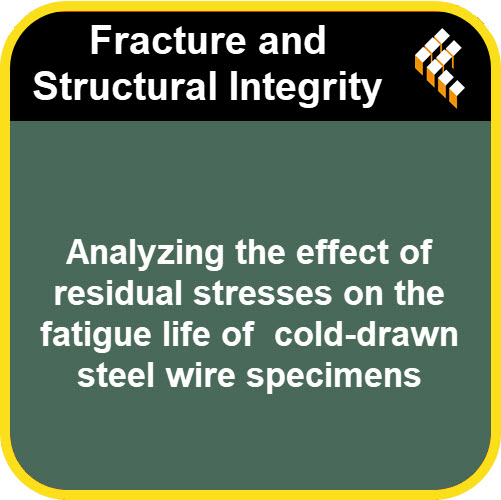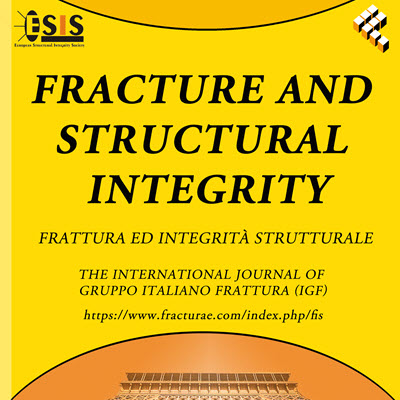Fracture and Structural Integrity: The Podcast
Stay at the cutting edge of fracture mechanics and structural integrity research with the official podcast of the Fracture and Structural Integrity journal. Join us for insightful interviews with top researchers, in-depth discussions of groundbreaking papers, and explorations of emerging trends in the field.
RSS Spotify YouTube Amazon Music
Analyzing the effect of residual stresses on the fatigue life of cold-drawn steel wire specimens
2025-07-09
https://www.fracturae.com/index.php/fis/article/view/5407
An analytical model, based on Solid Mechanics, is developed based on a comprehensive analysis of the effect of residual stress on the fatigue performance of cold-drawn steel wires partially yielded specimens. In the experimental part, it was initially assumed that the specimens, taken from the manufacturer's wire spools, did not have appreciable residual stresses. Therefore, a residual stress pattern was imposed on the specimens before the fatigue testing. Nevertheless, it was realized that the number of cycles spent by the specimens up to failure was higher than those predicted by the fatigue/residual stress compound analytical model. Hence, the initial assumption was reviewed, and a prior superficial compressive residual stress was incorporated into the model, most likely generated by cold-rolling manufacturing. The “resistance increase” and the “stress reduction” approaches were suggested to encompass the number of cycles difference, with good results. In addition, the prior level of existing superficial compressive residual stresses was also estimated.
DownloadFiletype: MP3 - Size: 14 MB - Duration: 11:55m (160 kbps 24000 Hz)
Powered by Podcast Generator, an open source podcast publishing solution | Theme based on Bootstrap
